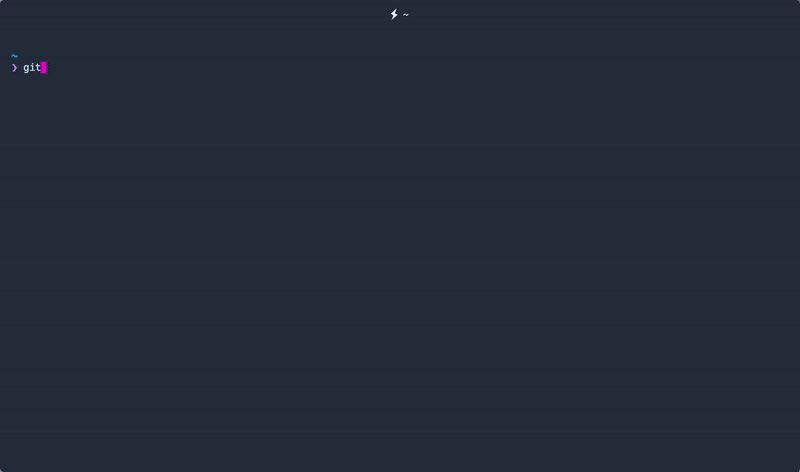tko22 / Flask Boilerplate
Programming Languages
Projects that are alternatives of or similar to Flask Boilerplate
Flask Boilerplate 

This is an minimal but opinionated boilerplate meant for building out simple REST APIs. It is primarily used at Hack4Impact UIUC. This app is written in Python 3.6 with Postgres 10 as the chosen data persistence. The default way to deploy it is with Heroku or Zeit now but you can deploy it with another service, like AWS, Google Cloud, or DigitalOcean with Gunicorn and Nginx, but instructions for that are not provided. Included are simple examples and instructions developing with or without Docker are provided. I've also written a blog post about using Docker based on this repository.
Documentation is located here. We use black for code formatting, and mypy for optional static typing.
Goal
The goal of this boilerplate is to allow developers to quickly write their API with code structured to best practices while giving them flexibility to easily add/change features. Here are the problems this is trying to solve:
-
Flask is too flexible. With Flask, you can write your application in any structure you like, even in one file. There are also a lot of different tutorials and guides providing different instructions & application structures to set up a Flask app with a database, confusing many newcomers about best practices.
-
Django and other Flask boilerplates are too heavy. Sometimes, I don't need a fully featured admin portal with Redis and an Email manager nor do I need templates. Many APIs and applications require the use of a database though. Thus, I've chosen Postgres because it is a battle-tested and reliable database used in many companies and we know that 99% of applications can easily be designed to use relational databases (especially the ones used at Hack4Impact).
Docs
Please Please PLEASE read the documentation if you don't understand something relevant to this boilerplate. Documentation is provided in the wiki page of this repository. I've also added comments with links to specific Flask Documentation to explain certain design choices and/or a specific Flask API (ex: test clients).
Usage
Here are some quickstart instructions, although I would look at the documentation for more details and other options of setting up your environment (e.g. full Docker setup, installed postgres instance, pipenv, etc).
First start a postgres docker container and persist the data with a volume flask-app-db:
make start_dev_db
Another option is to create a postgres instance on a cloud service like elephantsql and connect it to this app. Remember to change the postgres url and don't hard code it in!
Then, start your virtual environment
$ pip3 install virtualenv
$ virtualenv venv
$ source venv/bin/activate
Now, install the python dependencies and run the server:
(venv) $ pip install -r requirements.txt
(venv) $ pip install -r requirements-dev.txt
(venv) $ python manage.py recreate_db
(venv) $ python manage.py runserver
To exit the virtual environment:
(venv) $ deactivate
$
For ease of setup, I have hard-coded postgres URLs for development and docker configurations. If you are using a separate postgres instance as mentioned above, do not hardcode the postgres url including the credentials to your code. Instead, create a file called creds.ini in the same directory level as manage.py and write something like this:
[pg_creds]
pg_url = postgresql://testusr:[email protected]:5432/testdb
Note: you will need to call api.core.get_pg_url in the Config file.
For production, you should do something similar with the flask SECRET_KEY.
Easier setup
I've created a makefile to make this entire process easier but purposely provided verbose instructions there to show you what is necessary to start this application. To do so:
$ make setup
If you like to destroy your docker postgres database and start over, run:
$ make recreate_db
This is under the assumption that you have only set up one postgres container that's linked to the flask-app-db volume.
I would highly suggest reading the documentation for more details on setup.
Deployment
You may use Heroku or Zeit Now and the instructions are defined in the wiki page. I would recommend Heroku. The easiest way to do so is to click the Heroku Deploy button. Remember, once you fork/copy this repo, you will need to change app.json, especially the repository key. Everything else should be fine.
Repository Contents
-
api/views/- Holds files that define your endpoints -
api/models/- Holds files that defines your database schema -
api/__init__.py- What is initially ran when you start your application -
api/utils.py- utility functions and classes - explained here -
api/core.py- includes core functionality including error handlers and logger -
api/wsgi.py- app reference for gunicorn -
tests/- Folder holding tests
Others
-
config.py- Provides Configuration for the application. There are two configurations: one for development and one for production using Heroku. -
manage.py- Command line interface that allows you to perform common functions with a command -
requirements.txt- A list of python package dependencies the application requires -
runtime.txt&Procfile- configuration for Heroku -
Dockerfile- instructions for Docker to build the Flask app -
docker-compose.yml- config to setup this Flask app and a Database -
migrations/- Holds migration files – doesn't exist until youpython manage.py db initif you decide to not use docker
MISC
If you're annoyed by the pycache files
find . | grep -E "(__pycache__|\.pyc|\.pyo$)" | xargs rm -rf
Additional Documentation
- Flask - Flask Documentation
- Flask Tutorial - great tutorial. Many patterns used here were pulled from there.
- Flask SQLAlchemy - the ORM for the database
- Heroku - Deployment using Heroku
- Learn Python - Learning Python3
- Relational Databases - Designing a database schema
- REST API - tips on making an API Restful
- Docker Docs - Docker docs
Feel free to contact me for questions and contributions are welcome :)
[email protected]

